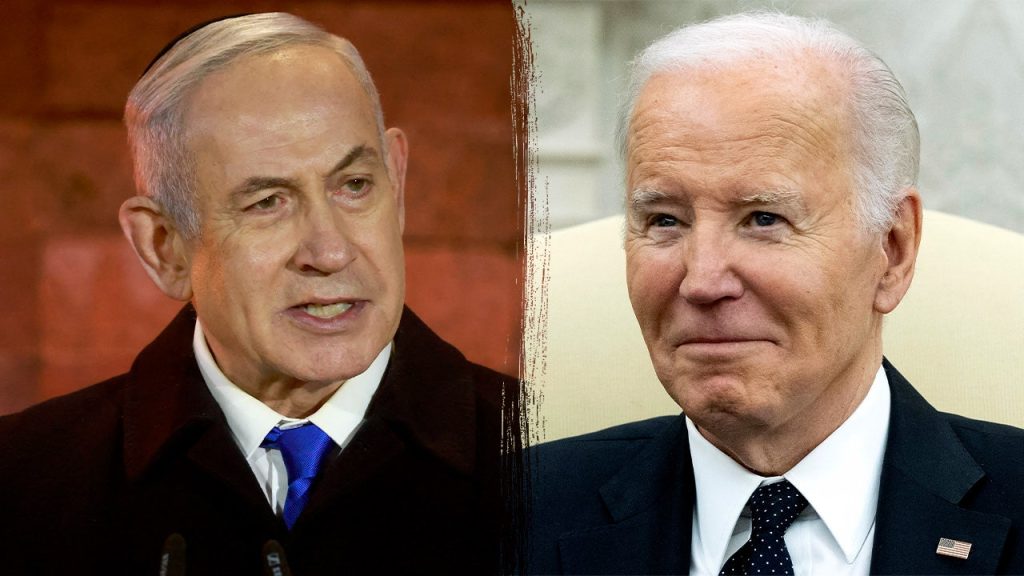President Biden’s response to a question about Israeli Prime Minister Benjamin Netanyahu’s efforts to secure the freedom of hostages held by Hamas in Gaza was met with criticism. Netanyahu rejected responsibility for the murders of 23-year-old Israeli-American Hersh Goldberg-Polin and five other hostages, stating that Hamas did not want a deal. Despite efforts to bring the hostages home, the situation remains dire. Critics argue that U.S. pressure has been unfairly focused on Israel rather than Hamas, potentially prolonging the conflict.
Pressure from the U.S. has been seen as directed at Israel rather than at Hamas, the group holding the hostages. Calls for a deal to secure the hostages’ release have escalated, with protests in Tel Aviv and a general strike organized by the labor union federation Histadrut. While Netanyahu has accepted a cease-fire and hostage deal, Hamas has been the stumbling block. Some believe that the lack of severe pressure on Hamas and its supporter, Qatar, is hindering efforts to release the hostages.
Former U.S. Ambassador to Israel David Friedman criticized Biden and Harris for their response to the hostage situation, arguing that the blame should be placed on terrorist organizations rather than on Israel’s leadership. Despite efforts to free the hostages, including negotiations and diplomatic initiatives, concerns remain about the lack of progress and the conditions faced by those held captive. Aviva Siegel, a former Hamas hostage, emphasized the urgent need to release the hostages and criticized the Israeli government for not doing enough to bring them home.
The recent deaths of six hostages in Gaza have added urgency to the situation, with calls for decisive action to secure the release of those still held captive. President Biden’s support for Israel’s war against Hamas has been noted, raising expectations for a diplomatic solution to the hostage crisis. Experts argue that a deal is necessary to prevent further tragedy and save the lives of the hostages. Despite challenges and risks involved in negotiations, the focus remains on achieving a successful resolution.
The emotional toll of the hostage situation is evident, with families pleading for action to bring their loved ones home safely. Concerns about the brutal conditions faced by the hostages add urgency to the need for a resolution. Former officials and experts emphasize the importance of international support and diplomatic efforts to secure the release of the hostages. The ongoing conflict highlights the complex dynamics at play in the region and the need for a coordinated approach to address the crisis.
Overall, the situation remains precarious as efforts continue to secure the release of hostages held by Hamas in Gaza. Criticism of Israeli and U.S. responses to the crisis underscores the challenges faced in finding a resolution. Amidst calls for action and protests, the focus remains on finding a diplomatic solution to bring the hostages home safely. The emotional impact of the hostage situation on families and the broader implications for regional security make it a critical issue that requires urgent attention and coordinated efforts to address.


